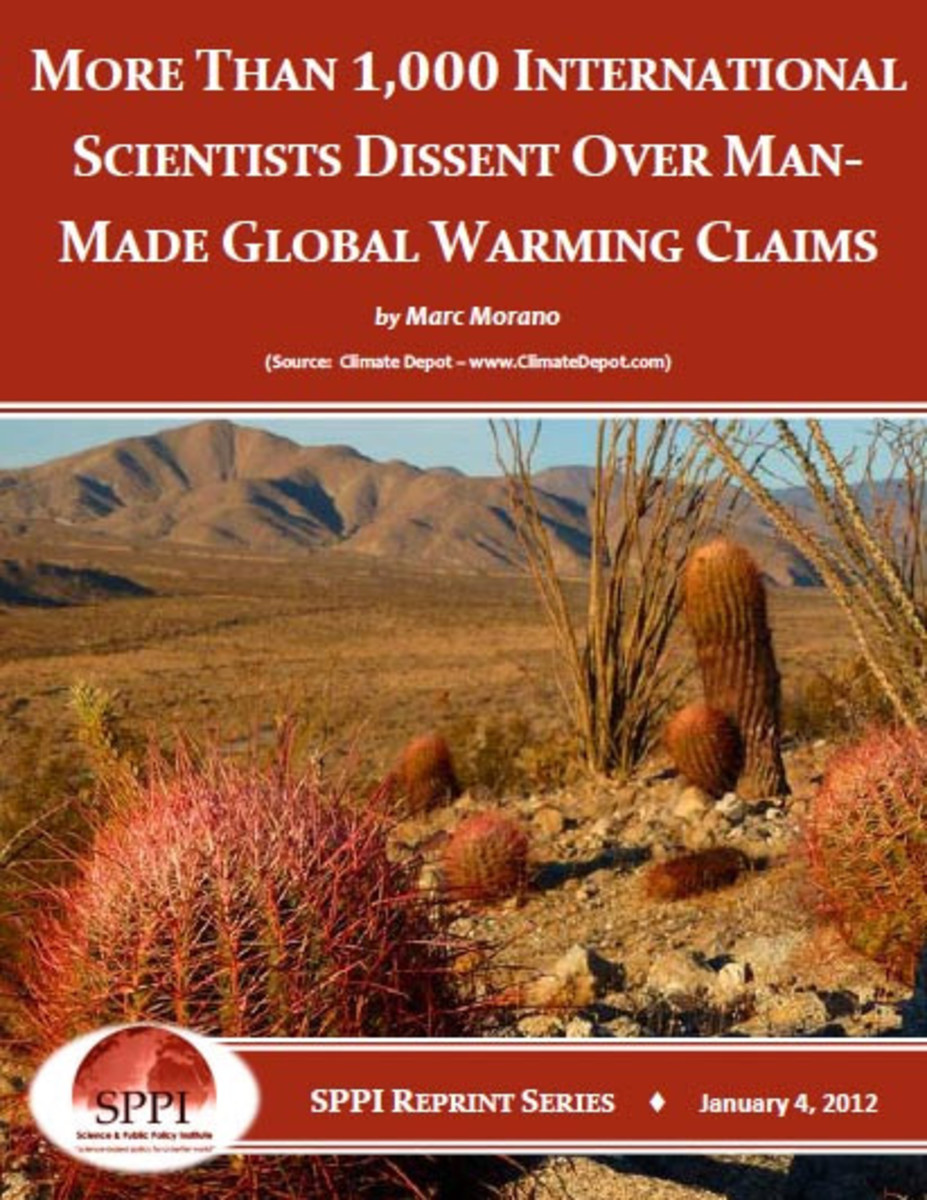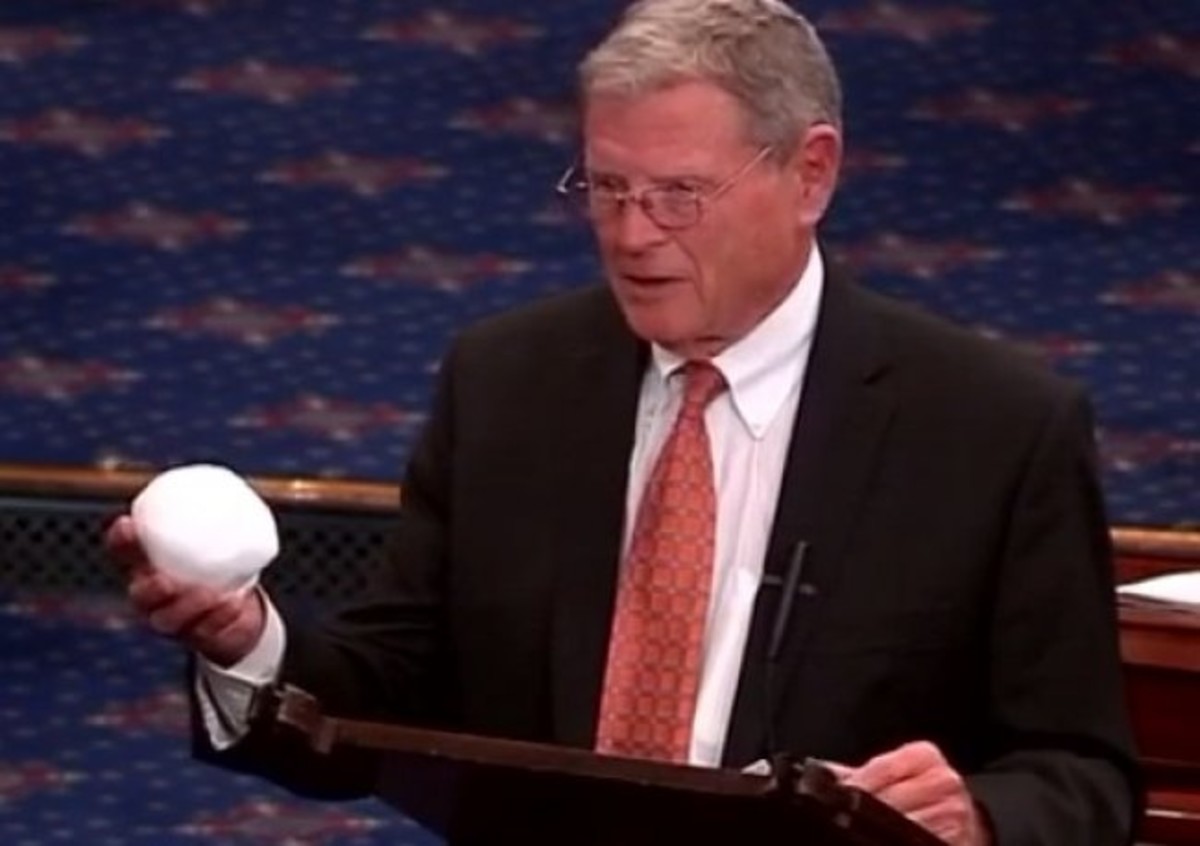Reasons for Climate Change Skepticism

A quote worth considering
“Don’t overrate science.” Blaise Pascal, Scientist
Links for more on climate change skepticism
- CO2isGreen.org: Team of Ex-NASA Scientists Concludes No Imminent Threat from Man-Made CO2 | SYS-CON
SYS-CON Media, NJ, The world's leading i-technology media company on breaking technology news. - Man-made global warming: even the IPCC admits the jig is up – Telegraph Blogs
Could this mysterious glowing orb have something to do with climate change? Surely not! Breaking news from the US - h/t Watts Up With That? - where a l - 2012 Hurricane Season Ends: NOAA Prediction WRONG AGAIN!
The 2012 hurricane season officially ends today with yet another loss for the federal government's official hurricane predictors at the National Oceanic and Atmospheric Administration (NOAA), which continues to be wrong more often than right. NOAA pr - Human Carbon Emissions Seen by Researchers Holding Back Ice Age - Bloomberg
Human emissions of fossil carbon into the atmosphere and the resulting increase in temperatures may be holding off the next ice age, according to research from Sweden’s University of Gothenburg. - Global warming stopped 16 years ago, reveals Met Office report quietly released... and here is the c
The figures, which have triggered debate among climate scientists, reveal that from the beginning of 1997 until August 2012, there was no discernible rise in aggregate global temperatures. - Climate Change Dispatch - Because the debate is NOT over
Combating the alarmist nature of the mainstream media and the climate change zealots who have turned man-made global warming into a profit-driven industry and not a scientific endeavor for answers. We seek to explore the notion that the fractional in - THE GLOBAL WARMING HOAX
The official position of the World Natural Health Organization in regards to global warming is that there is NO GLOBAL WARMING! Global warming is nothing more than just another hoax, just like Y2K and the global freezing claims in the 1960's and 70's
More Global Warming Hype
- Barney Frank: GOP paid price for ‘abysmal stupidity’ on climate change - The Hill's E2-Wire
Rep. Barney Frank (D-Mass.) attributes the recent GOP defeat in the election to 'abysmal stupidity' on climate change. - Former UN official says climate report will shock nations into action
First things first...science is not consensus, it is about being right
“Let’s be clear: The work of science has nothing whatever to do with consensus. Consensus is the business of politics. Science, on the contrary, requires only one investigator who happens to be right. … The greatest scientists in history are great precisely because they broke with the consensus.”-Michael Crichton
There are many reasons to be skeptical
There are many reasons for you to consider that climate change isn’t real. Before getting into a discussion of the reality of climate change, it is important to define what you are talking about in referring to climate change. When climate change is referring to seasonal changes in weather, most people acknowledge that that type of climate change exists. The weather changes with the seasons. Some winters are more severe than others. Some summers are more extreme that others. There are not only seasonal differences, there are differences in the intensity of seasons from year to year. When ‘climate change’ refers to either one of these tow types of change, there is great agreement that such change occurs. You can review data on temperature, rainfall and other variables and see that such changes occur.
Where skepticism occurs is when the term climate change is used in referring to either global warming or global cooling as a man-made, long term trend. Some of this skepticism comes from experience. Those who lived through the seventies know that the claims of ‘global cooling’ that were made at that time, starting with the first Earth Day on April 22, 1970 (which just happens to be Vladimir Lennin’s birthday) have proved unfounded. They know that the predictions made in the headlines of the Washington Post that “Colder Winters Held Dawn of New Ice Age” and all the predictions of massive crop failures and starvation which were supposed to happen in the 1980’s did not occur.
There are also some skeptics among students of history. Those who know European history are aware that the earth was warmer during the Roman empire and the Viking periods. They know from their studies that wheat and other crops were once grown in Greenland, which is now covered with ice. Having such a knowledge of historic events makes them less susceptible to climate change alarmism about global warming. It is hard to sound the global warming alarm bells when they know that the earth has been warmer before.
Another possible source of skepticism occurs with the politicizing of science. Much like mixing apples and oranges, political and scientific terms and techniques are being used and presented to the public. The term ‘consensus’ is often used heard among climate change proponents. A consensus occurs when there is a need for a forced agreement among a group of people. A scientist who examines facts and patterns looks at data and statements that are proven by data rather than by consensus, even a consensus of 'experts'. When you tell the public that there is a scientific consensus, you are mixing a political technique with scientific word. The term sounds impressive, yet has little meaning. Besides misleading the public by mixing political methods and scientific assessments, using consensus makes the public lazy. By using consensus as their authorities, they are not thinking for themselves. You are not looking at the scientific data or even the findings. Instead you are letting others do your thinking for you.
Since much of the climate change hype has occurred with the Intergovernmental Panel on Climate Change (IPCC) of the United Nations, which is a political body, the results will be political in nature. By its very nature, political bodies use political tools. Claiming that a political group has scientific credibility is misleading. If the climate change news came from a non-political group of scientists with experience and notoriety in climate change, then the material they present would have more credibility. What makes matters worse is that many of the policies suggested and implemented by the IPCC starting in 1994, were based on a climate change paper written or edited by a 25-year old (Sari Kovats) without any scientific credentials.Although the reports were presented as 'authoritative' and scientifically sound, they were being assembled and supervised by someone who at the time had not published an academic paper. (Her first academic paper was published three years after she assumed the position with the IPCC). So although she was editing the chapters that became the basis for the IPCC addressing the effects of climate change on human health, at the time she did not have the academic or scientific credentials to qualify her as an expert.
It is also hard to accept climate change as 100% credible when some of their spokespersons are not the leading expert in their field. For example, Dr. James Hansen was trained as an astronomer and wrote his doctoral thesis on the atmosphere of Venus. Having someone who is trained in studying stars and Venus does make them an expert on climate change on earth. Had his training been in the study of glaciers, or the study of air quality on Earth, or how volcanoes have changed weather, he would be more of an expert. Dr. Richard Lindzen who is an atmospheric physicist at MIT asked a pertinent question along these lines, “Why are the opinions of scientist sought [about global warming] regardless of their fields of expertise? Biologists and physicians are rarely asked to endorse some theory of high energy physics. Apparently when it comes to global warming, and scientist’s agreement will do. The answer most certainly lies in politics”. Another good observation and quote is by Patrick Burns, of the Citizens for a Sound Economy (CSE). He examined the 2600 ‘scientists’ cited by the Clinton administration on the climate change issue. He found one climatologist in the group and stated, “Among these so-called experts on global warming are a plastic surgeon, two landscape architects, one hotel administrator, a gynecologist, seven linguists, and even one person whose person whose academic background is in traditional Chinese medicine”. When the so-called experts are not the most highly trained and qualified in the field to which they are making comments, it raises concerns of skepticism.
A final key reason concerns the attitude taken among climate change alarmists that the ‘science is settled’ on the issue of global warming. The attitude that the science is settled offers little room for debate and thus creates a situation filled with conflict and animosity. The climate change camp claims that carbon dioxide is a major contributor to global warming. Although the claim is made, when the scientific data is examined, the CO2 levels increase after warming begins, not before. All the hysteria about CO2 levels makes the climate change group look extreme, given that natural phenomena like volcanoes, trees and other items contribute more greenhouse gases than does man and man-made items. The data also shows that the temperature has only risen on average of 1 degree Fahrenheit in 100 years. It is hard to alarm people when they know that the actual change is only 1 degree. Even if the Kyoto protocol was enacted world wide, it would only slow climate change by .07 degrees centigrade, which is minimal.








